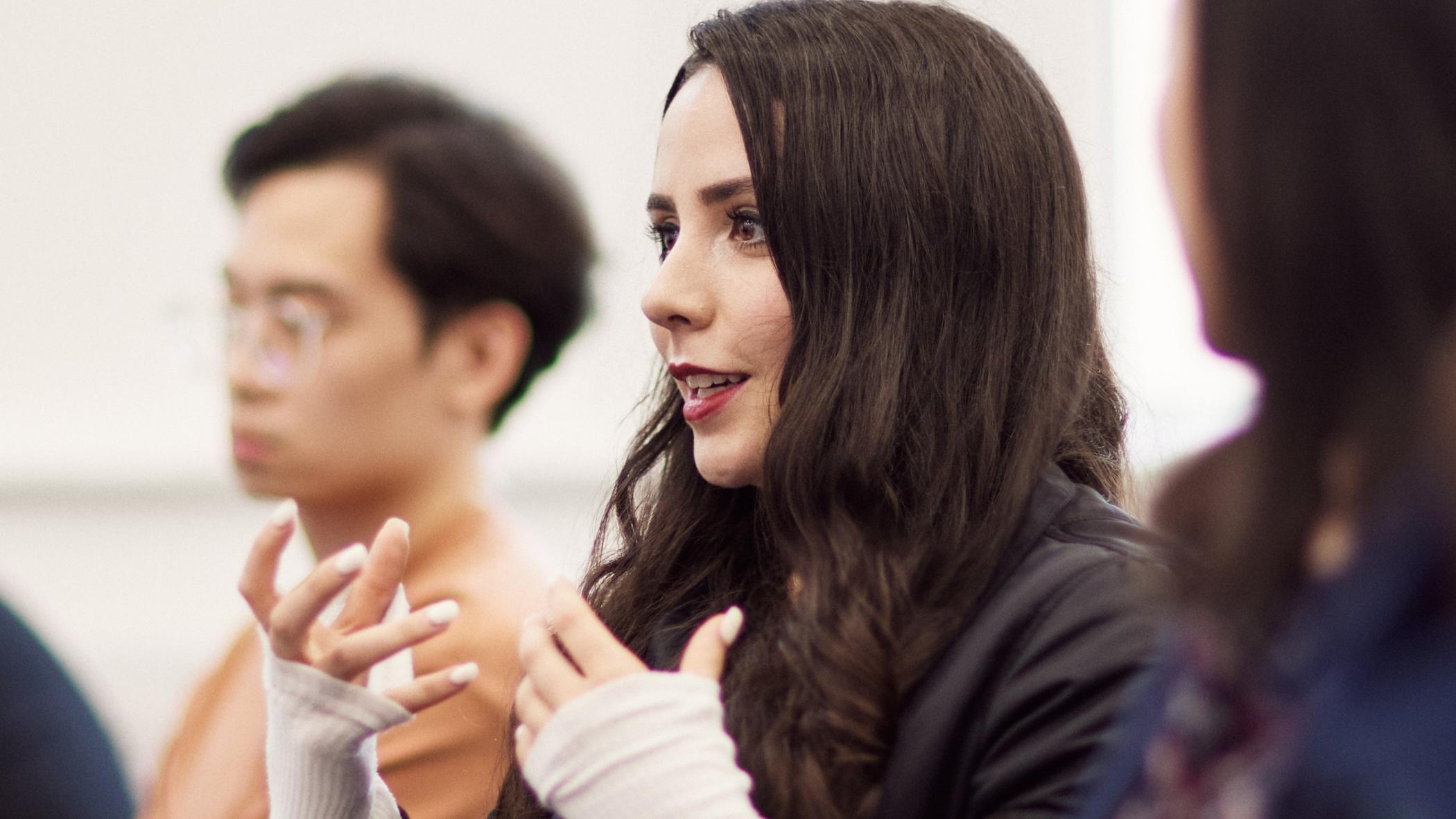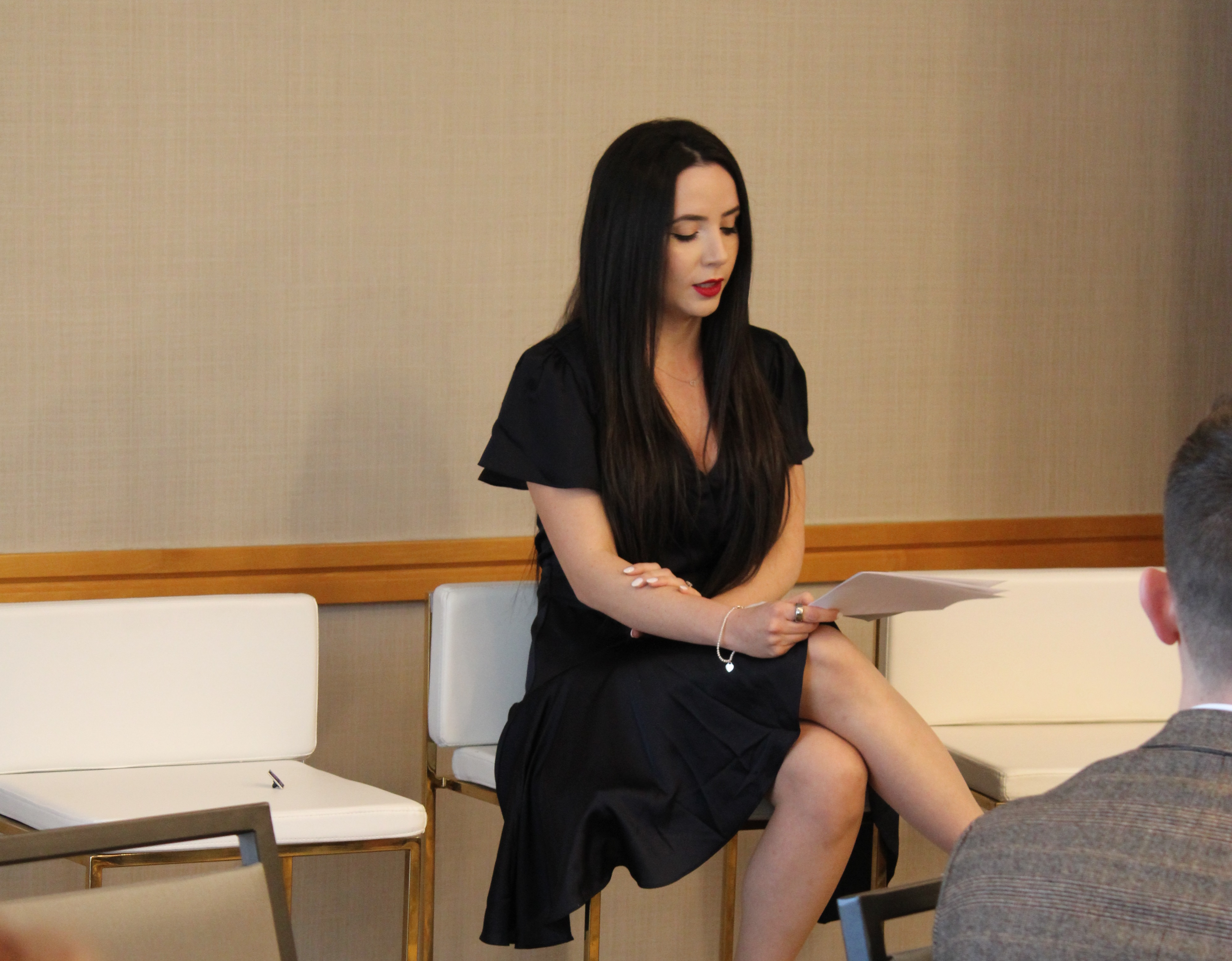Smith School alum Claudia Herbert Colfer on the impact of the MSc in Sustainability, Enterprise and the Environment

2021-22 Oxford Smith School alum Claudia Herbert Colfer was a programme coordinator in the UN Global Compact when she enrolled on the Smith School of Enterprise and the Environment’s MSc in Sustainability, Enterprise and the Environment. Two years on, she is now Head of Programming there, a role in which she helps some of the world’s largest companies reduce their environmental impacts. Claudia’s work and impact earned her a place in the prestigious Forbes 30 under 30 list last year. Here, she answers four questions on the lessons she took from the MSc, and what happened next.
What impact did the Smith School MSc have on your career?
The MSc impacted me in various ways. On one side, the program provided me with a lot of the technical knowledge required to excel in the sustainability space. Prior to pursuing this master's degree, I found myself grappling with fundamental concepts like the various types of carbon emissions and how to best account for them in a corporate setting. I was also trying to answer questions such as “how can someone develop a compelling business case for sustainability given the various needs of diverse stakeholders?” The program was pivotal in helping me explore all these technical topics and come up with answers to some of my most pressing questions.
On the other side, the MSc also helped me develop as a professional. Being surrounded by world-class leaders in the field and classmates that came from such different backgrounds and who were knowledgeable beyond their years, was not only incredibly inspiring but it also helped me better understand myself as a professional and what I wanted to do with my career long-term.
What has happened since?
After graduating from Oxford, I went back to working for the US office of the United Nations Global Compact Network USA in NYC. Here, I am in charge of the team that develops and deploys accelerator programs and initiatives that help American companies do business more sustainably. At Oxford, I developed the required skills to improve and expand the programs that we offer to companies from three programs to over 10 (this is all within only two years!). This is helping maximize the impact that the US private sector is making in the sustainability space.
On a more personal note, I also stayed in touch with my classmates and Oxford faculty. Not only am I now working with one of my close friends from the program at the Global Compact but last year I even hosted an event with Professor Rob Hope, Dr Alex Money, and the Uptime team at our offices during the UN Water Conference.
Which lessons have you found most useful in your day to day work?
I enrolled in the MSc program to enhance my expertise in corporate sustainability. Before the program, I was working for the United Nations helping companies understand the competitive advantage of sustainability and teaching them how to effectively embed sustainability into their day-to-day operations. However, I did not feel I had a good enough grasp of the technicalities around sustainability to be able to do my job as effectively as possible.
The program helped me build an excellent foundation around key sustainability topics, which in turn allowed me to successfully contribute to the enhancement of sustainability efforts for some of the globe's largest corporations. Since graduating from Oxford, I have enhanced existing and developed new programs focused on environmental and social sustainability topics that have helped almost 200 companies across the United States do business more responsibly.

How did the Smith School MSc change the way you view climate change and sustainability?
The MSc helped me understand sustainability more holistically. When working in the sustainability space, it's easy to become narrowly focused on specific topics and stakeholders. This laser vision sometimes makes you forget about the larger picture. The MSc reminded me that sustainability challenges spread across vastly different issues (from climate, energy, and biodiversity challenges to social issues such as gender inequality and racial justice) and helped me understand how all these issues can affect diverse stakeholders in considerably different ways. I strongly believe that you must keep the big picture in mind if you are to devise sustainable initiatives that truly make a positive change in the world.
What’s happening at the UN Global Compact right now?
The US office of the UN Global Compact reached an important milestone last year – we welcomed our thousandth company to the organization. We are currently focused on expanding our reach and engaging even more American corporations with our work. To do this, we are continuing to expand our programmatic offerings (I’m hopeful that by the end of next year we will be able to offer 15+ programs and initiatives to our companies) and are also focusing on other important areas such as providing guidance to corporations on how to navigate ongoing reporting changes as well as evolving corporate sustainability regulation both in the US and in Europe. Our ultimate goal is to position ourselves as the foremost organisation supporting the US marketplace in its sustainability efforts.
